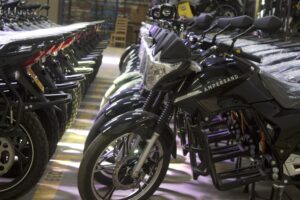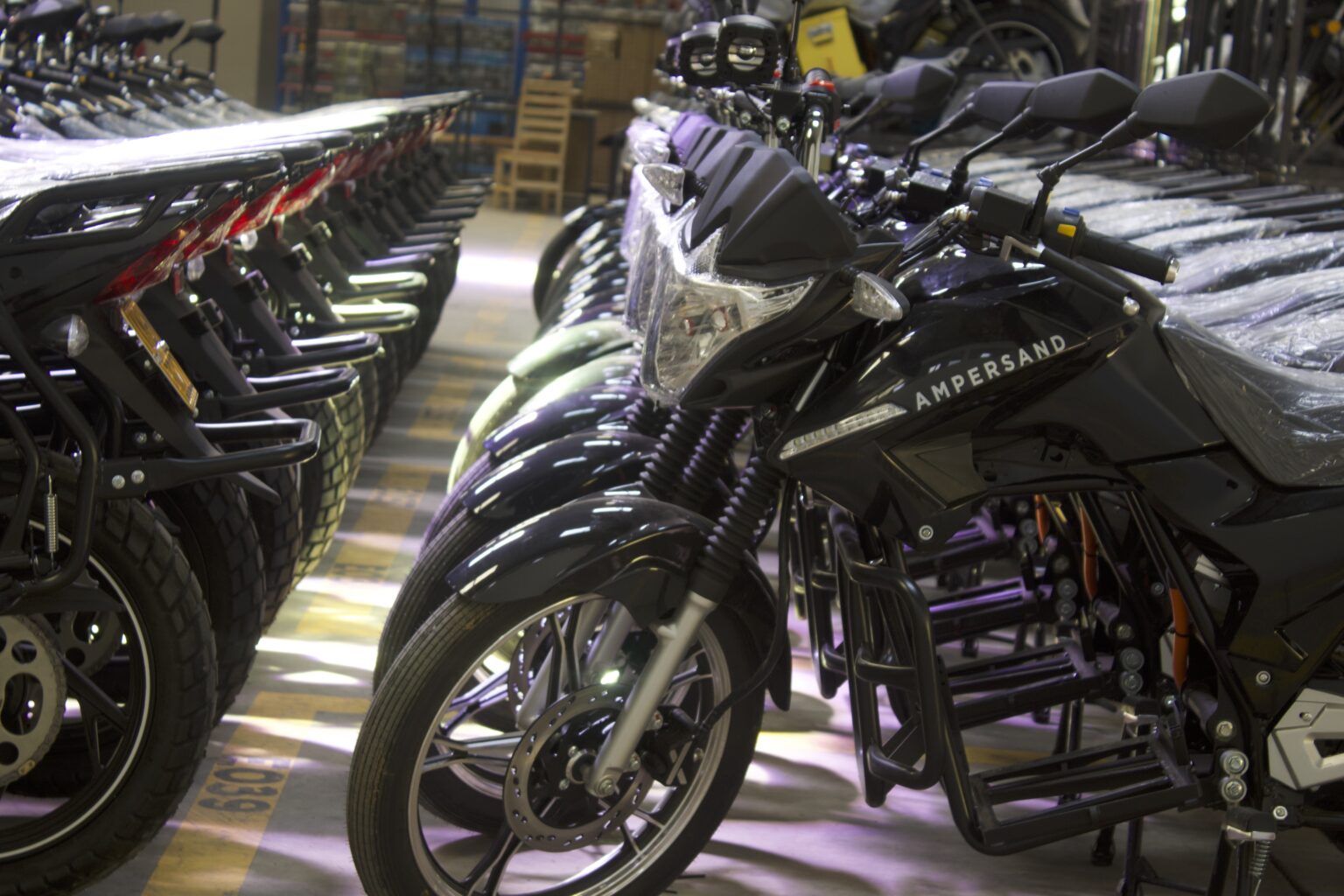- The firm’s new Nairobi factory has tripled production capacity, fueling the county’s transition to electric motorcycles.
- Ampersand already has over 1150 e-bikes on the roads of Nairobi
- The latest expansion underscores the company’s commitment to cutting carbon emissions and driving clean economic prosperity across Africa.
Ampersand, one of Africa’s electric vehicle (EV) energy tech companies is ramping up its presence in Kenya with the opening of a new, larger plant in the capital Nairobi. This expansion is poised to triple the company’s production capacity in the country, a strategic move aimed at meeting the surging demand for electric motorcycles (e-motos).
With over 1,100 Ampersand e-motos already zipping through Kenyan roads, the need for more is clear—and Ampersand is prepared to deliver.
A strategic expansion for sustainability
Ampersand’s new Nairobi factory is a significant upgrade from its previous operations. Spanning 21,000 square meters, it is more than three times larger than the former 6,500 square meter site.
The expanded facility will enable the company to assemble up to 60 electric motorcycles per day—1,440 per month—along with maintaining one of Kenya’s battery swap network. The new manufacturing hub is also boosting local employment, with the deployment of over 100 employees.
Josh Whale, CEO of Ampersand, described the new facility as a “major step forward” for the company and for electric mobility in Africa.
“Our new Nairobi factory reflects our dedication to providing sustainable, affordable EV solutions that directly benefit riders and the environment,” he said. “With this expanded capacity, we’re in a stronger position to support the electrification of Africa’s commercial motorcycle transport.”
The case for e–motos: Cost savings and environmental impact
Ampersand’s e-motos are not only environmentally friendly, but they also make a significant difference in the financial lives of riders. Each Ampersand electric motorcycle saves at least two metric tonnes of CO2 emissions per year—an important contribution to cutting carbon emissions in a region where air pollution is a growing concern.
Additionally, Ampersand’s electric motorcycles offer considerable financial savings. Riders using Ampersand’s e-motos report a 45 per cent increase in their annual income, a vital benefit in Kenya where the average commercial rider supports approximately 3.8 people at home.
The company’s business model, centered around affordable, sustainable mobility solutions, is making a strong impact on the commercial motorcycle industry. With the cost of fuel rising and the need for climate-friendly transportation growing, Ampersand’s e-motos provide a viable alternative to traditional petrol motorcycles, which are the lifeblood of Kenya’s bustling motorcycle taxi (boda boda) sector.
A growing network across East Africa
Kenya is not Ampersand’s first success story. The company’s initial venture into the electric motorcycle market began in Rwanda, where it spearheaded the adoption of e-motos.
The company’s electric fleet has since grown into a powerful force across East Africa. Ampersand’s combined operations in Kigali and Nairobi cover over 4.5 million kilometers per week, demonstrating the scalability and effectiveness of its model.
With this latest expansion in Nairobi, Ampersand is positioning itself to meet the growing demand for electric motorcycles not just in Kenya, but across East Africa. The region, where nearly 100 million people rely on petrol motorcycles for taxi or delivery services, is ripe for electrification.
Ampersand aims to deploy five million electric motorcycles by 2033, making a huge dent in both carbon emissions and operational costs for riders throughout the region.
Building a sustainable future
At the core of Ampersand’s success is its battery swap network, a smart, AI-optimized fleet of batteries that riders can quickly exchange at designated points across the city. This model eliminates the need for long charging times, allowing riders to keep working without downtime.
The battery swap system is particularly important for boda boda riders, who rely on their motorcycles for daily income. By cutting out fuel costs and offering quick battery swaps, Ampersand’s e-motos are not only more affordable to operate but also more reliable than their petrol counterparts.
Ampersand’s commitment to sustainability extends beyond just reducing emissions. By providing affordable mobility options that cut riders’ costs and boost their income, the company is creating a ripple effect that supports broader economic growth in Kenya and beyond.
As more riders switch to electric motorcycles, the savings on fuel costs are reinvested into their communities, stimulating local economies and improving quality of life.
Read also: Bolt, TRÍ, and Watu launch new plan to accelerate eco-mobility with electric Bajajis
Meeting Kenya’s e–moto demand
Kenya’s appetite for electric motorcycles is growing rapidly, driven by a combination of rising fuel costs, environmental awareness, and the economic benefits of switching to electric.
Ampersand’s new facility in Nairobi is set to play a key role in satisfying this demand, allowing the company to keep pace with the country’s shift towards sustainable transportation.
As Kenya continues to embrace green technologies and sustainable solutions, Ampersand’s expanded production capacity marks a critical milestone. The company’s new factory will not only help meet the growing demand for e-motos but will also contribute to reducing Kenya’s carbon footprint and boosting the incomes of the country’s boda boda riders.
In a region where millions rely on motorcycles for their livelihoods, Ampersand is paving the way for a cleaner, more affordable future—one electric ride at a time.

